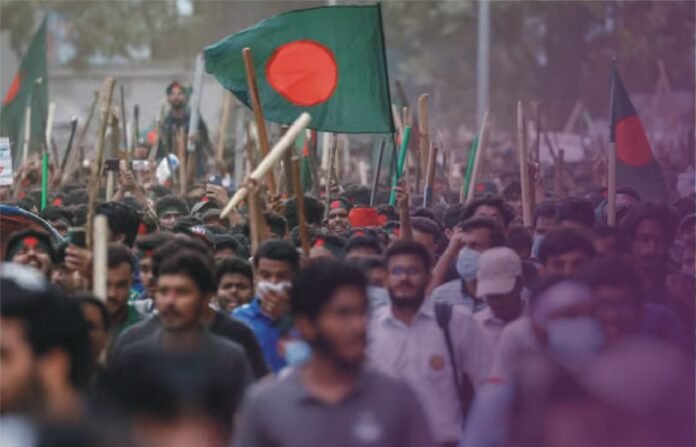At least five people died and dozens were injured in violent protests over a government job quota in Bangladesh on Tuesday. Students fought young government supporters and police, who shot tear gas to disperse them.
After over 100 people were injured on Monday, tens of thousands of students blocked major roads and trains for a second day. This is the first large demonstration against Prime Minister Sheikh Hasina’s government since her fourth straight term began in January.
Protests are against a public sector job quota system that includes a 30% quota for descendants of 1971 War of Independence independence fighters. Quota discontent has increased due to high youth unemployment.
Rubber bullets and tear gas were used by police to quell university demonstrations countrywide. Rangpur Metropolitan Police Commissioner Mohammad Moniruzzaman said one student died amid violent demonstrations. How the student died is unknown.
Dhaka University was aggressively policed after one student died. Three individuals, including two students, were slain in Chittagong, although police commander Saiful Islam denied using force.
Despite conflicts, the Border Guard Bangladesh paramilitary force is deployed nationwide to ensure security.
Mohammad Abdur Razzaque, head of Research and Policy Integration for Development, said frequent salary raises and other incentives make government positions more tempting owing to stagnant private sector job growth. Around 32 million young Bangladeshis are unemployed or undereducated.
Bangladesh reserves 56% of government positions for women, 10% for undeveloped areas, 5% for indigenous populations, and 1% for disabled individuals.
Monday’s fight between anti-quota demonstrators and the ruling Awami League student wing became violent. Protesters led by Nahid Islam will keep demonstrating until their demands are realized.
The High Court reinstated the 30% job quota earlier this month, sparking protests. Even when the Supreme Court temporarily suspended the decree, protests increased after Prime Minister Hasina refused to satisfy the students’ requests, calling quota opponents “razakar,” a pejorative for 1971 war collaborators with the Pakistani army.
The government must meet students’ demands or protests will continue.

Published:


